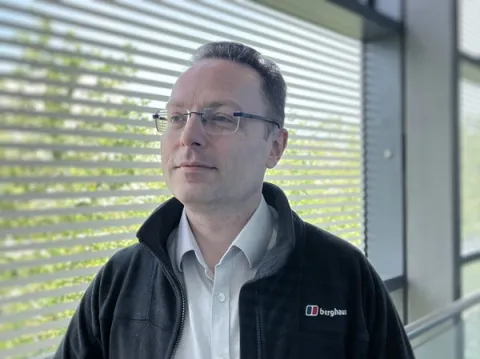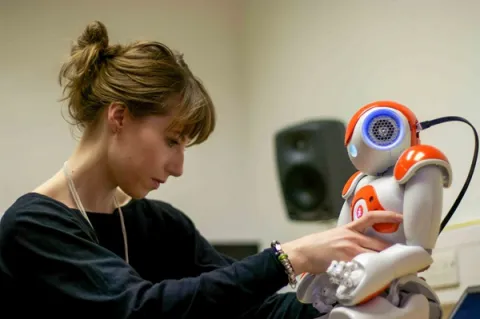Project overview
The UKRI Centre for Doctoral Training in Machine Intelligence for Nano-electronic Devices and Systems (MINDS-CDT) will operate as a centre of training excellence in the next generation of systems that employ Artificial Intelligence (AI) algorithms in low-cost/low-power device technologies: hardware-enabled AI. The use of AI in real-world applications through systems of interconnected devices (so-called Internet of Things) is increasingly important across the global economy. Various market surveys estimate the sector to be valued in the hundreds of billions, and project levels of compound annual growth of 25-30%. Applications of these technologies include:
- smart cities
- industrial IoT and robotics
- connected health and smart homes
It is widely agreed that new advances in artificial intelligence and machine learning are key to unlocking the potential of these systems. Significant challenges remain, however, in the development of robust algorithms and coordinated systems that are efficient, secure, and work in concert with modern devices.
Advances in electronics will soon hit atomic scales, requiring new approaches if we are to continue to improve hardware speed and power consumption. Novel nanotechnologies such as memristors have the potential to play a key role in addressing these challenges, but critical to their employment in real-world applications is how algorithms work in the context of device physics. Further, there are significant challenges around how resources available to devices (energy, memory, etc.) can more effectively adapt to the computational tasks at hand, again requiring us to think about how hardware and software work together. The MINDS CDT is unique in its cross-disciplinary research programme crossing emerging AI algorithms and models with advances in device technologies that underpin and enable their potential. To quote from one of our industry partners, "innovation is to come from software and hardware co-development" and that "this joined-up thinking as a potential game changer".
The MINDS-CDT will train a substantial number of experts with the knowledge and skills to lead the development of this next generation of intelligent, embedded systems. The training programme will draw from both computer science and electronics expertise at the University of Southampton, and a substantial network of stakeholders from across industry, government and the broader economy. Core to our training ethos is the up-front investigation of the potential impacts of technological innovation on society, security and safety, and in the engagement of interest groups and the public in understanding the benefits as well as the risks of the use of these new developments in AI and technology for our society and economy. The processes we will use here include that all projects and research activities will be informed by in-depth impact assessment, and we will instigate an ambassador's programme for public engagement and, in particular, the engagement of underrepresented groups in AI and engineering.
For more information visit the MINDS CDT homepage.



















